Campaigning for small and local abattoirs
Moveable Slaughter Unit
Local. Sustainable. Humane.
Moveable Slaughter Unit (MSU)
Following extensive research beginning in 2018, driven by a desire to slaughter our animals on-farm for the benefit of welfare and the environment, our moveable slaughter unit was designed by Cogemat, an Italian company with 50 years’ experience in the industry. It was built and shipped to the UK in 2021 where it went through a rigorous inspection and licensing process.
The unit is owned by Fir Farm and we have just completed the build of our new onsite abattoir at Rectory Farm, consisting of a permanent lairage and chiller with enough room to hang 10 cattle and 30 pigs or sheep.
Although we are not opening the site up to cattle outside of our business, we will be offering the opportunity for other local farms to have their lambs and pigs processed though our abattoir. At present our abattoir will only be operating one day a month.
We are now able to own the whole story within the life-cycle of our animals, with animals born, raised and killed on-farm in a stress-free, no transportation method. Zero Food miles.
Our meat is available from our vending machines and through our click and collect system.
What are the benefits of a moveable slaughtering unit?
What are the external requirements for the location where the MSU is sited?
As the unit is moveable, it does not have the satellite functions of lairage, gut room, chilling and processing attached in the same way as a static abattoir. Any of these areas external to the unit need to be licensed by the FSA.
The following additional facilities are required:
Potable water supply and electricity (3 phase for pig equipment).
A concrete hard standing area with drainage to aid cleansing and disinfection.
Detainment pen with its own drainage, water and separate access for any suspect animal pending re-inspection.
Facilities to dispose of washing water – this can be a tank or mains sewer, or the water can be spread on land providing the correct license is obtained.
Facilities for the Official Veterinarian (OV), including a nearby toilet.
Further site requirements include adequate fencing to prevent escape of livestock, suitable access for a 40ft articulated lorry as well as the ability to restrict access should a notifiable disease be suspected.
Chiller – on a mobile unit, as with some small abattoirs, the chilling space is the most limiting factor and can create a bottleneck that restricts production. The MSU chiller can only accommodate 5 cattle (or sheep and pig equivalent). Ideally, an on-site or additional mobile chiller would be available to continue carcase chilling to +7oC.
Guts and by-products – the mobile unit does not contain its own gut room due to space limitations. Having a small gut room adjacent to the unit would be ideal as this would enable more of the animal to be used.
Covered lairage and walkways – to include potable water, CCTV and adequate space and lighting to carry out ante mortem inspection. This can be a section of an existing barn providing it meets regulatory requirements.
Why small abattoirs?
Small abattoirs provide the crucial services of private kill that enable farmers to process their animals locally and sell their own meat direct to customers. This service enables local meat to be sold through pubs, shops and restaurants, as well as through farmers markets, farm shops, meat boxes and local butchers.
Small abattoirs also process the livestock more often seen in smaller scale and regenerative farming systems, such as rare and native breeds, long-horned cattle and cattle over thirty months of age.
These small abattoirs are therefore crucial for the future of local, traceable and high welfare meat, as well as supporting sustainable and regenerative farming systems.
A thriving and diverse network of abattoirs also significantly reduces distance to slaughter, improving animal welfare and reducing food miles.
However, small abattoirs have been closing at a rate of 10% per year, with only 49 small red meat abattoirs remaining in England. The cause of closures has been a combination of issues including regulatory pressures, rising running costs, staff shortages, retirement without succession plans, increased cost of animal by-product collection and the collapse in value of hides and skins.
This is why we have been campaigning for small abattoirs since 2018, alongside the Sustainable Food Trust, and became co-founders of the Abattoir Sector Group in 2020.
The Abattoir Sector Group seeks to provide a unified voice for the small and local abattoir sector, working with government to address the issues facing the sector.
FAQs
How is the MSU moved?
An articulated lorry is used to tow the MSU.
What sort of license does the MSU need?
The MSU is currently subject to the same licensing requirements as any other red meat slaughterhouse. One difference is that the site and facilities and the MSU must be approved together. Currently the location cannot be approved without the MSU being present.
Does the MSU need a CPH number?
A County Parish Holding (CPH) number is required for the mobile unit and a separate number is needed for the licensed area, to correctly report the movement of livestock. The RPA have given assurances that applications for CPH numbers will be expedited swiftly and will not have any impact on the farm’s RPA payments.
Will the MSU compete with existing small abattoirs?
Moveable abattoirs should be part of the overall solution to providing slaughtering services to farmers wanting to produce and sell local, sustainable, and high welfare meat. This type of unit is intended to be used in areas where there is no other small abattoir service available.
What might the future operational or business model look like?
Fir Farm’s view is that hub sites, which include the additional facilities such as lairage, chill room and cutting room, would be the most viable option for moveable units. These could be set up, run, and shared by farmer-led groups. An MSU could then move between several farmer hub sites, shared by the surrounding farmers, rather than each individual farm needing to become licensed and provide the correct facilities.
Another option is to use the MSU as a static modular unit as it could provide a more affordable way of establishing a new abattoir or of avoiding the costs of a rebuild. This would work well in locations that already have FSA approved chillers, processing, and butchery facilities.
Want to find out more?
Once facilities are in place, Fir Farm intend to hold open days for those interested in building their own MSU and who would like to know more about the process and workings of the Fir Farm unit. If you would like to hear when open days are taking place, please register your interest by email to megan@sustainablefoodtrust.org
This work has been partly funded by the European Agricultural Fund for Rural Development.
In 2020 we were co-founders of the Abattoir Sector Group. This group aims to provide a unified voice for the sector and works with government to help address the problems small abattoirs face.
Further Reading
- Our response to Government Consultation Improvements to Animal Welfare in Transport
- Report: A Good Life and a Good Death: Re-Localising Farm Animal Slaughter
- Report: All-Party Parliamentary Group for Animal Welfare
- Click here for more on Covid-19 and the abattoir sector
- Read the CFLA’s response to the National Food Strategy Consultation
- Read the CFLA submission to the National Food Strategy
- Read the CFLA response to Defra’s Health and Harmony command paper














